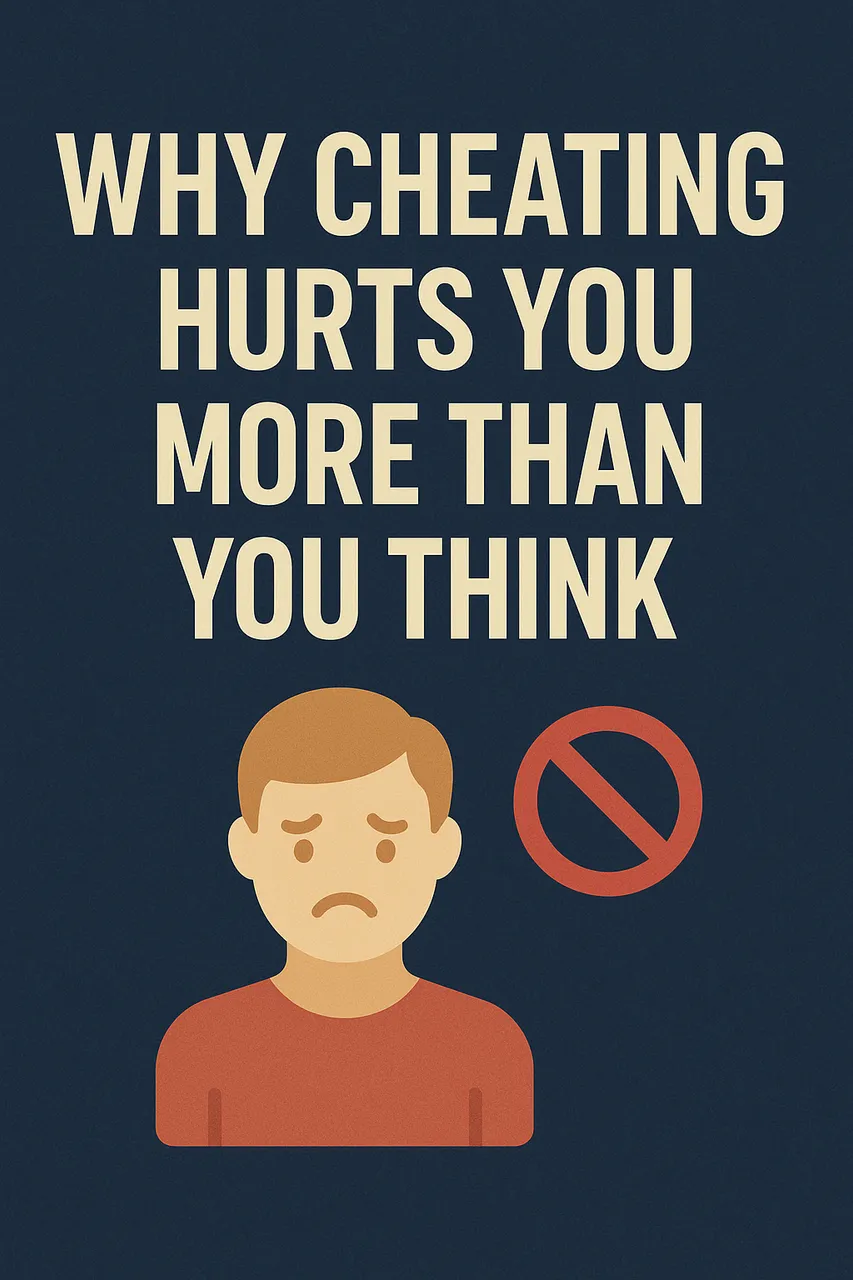We've all heard it a million times: "Don't cheat." Every professor, sometime between January and May, will issue this warning. And yet, if you're like most students, you've likely heard it so many times that it's beginning to fall on deaf ears. But what if the standard arguments don't quite resonate? What if there's more to cheating than you've been thinking? The reality is, cheating isn't something that only hurts other people — it's something that hurts you in ways that you might not even understand until it's too late.

Busting Common Cheating Myths
Okay, first let's get some common myths out of the way. We've all heard these, right?
"If you cheat, you're hurting your classmates."
Now, this might be true if your course is graded on a curve — where your achievement literally takes someone else's grade down. But in most classes, particularly in schools like the University of California, grades are not curved. This is to say that your achievement does not deprive others of anything. Indeed, most professors are encouraging co-operation, not rivalry. So, cheating in order to outperform others just does not count here.
"Cheating ruins the reputation of the university."
Frankly, this is a bit of a reach. Sure, there are scandals now and then — whether student-related, sports-related, or faculty-related — but one act of cheating isn't going to topple a globally respected institution like UC. The institution's reputation is intact due to its general excellence, not due to an individual's misbehavior.
So, if those aren't the actual reasons not to cheat, then what are? Let's cut to the chase.
The Real Cost of Cheating: You're Hurting Yourself
Here's the most critical thing you need to know:
Right now, you're creating the person you're going to be for the rest of your life.
We tend to imagine grand choices as turning points, but in fact, most of what we do is habitual. Each small thing we do today lays the groundwork for how we'll face challenges tomorrow. If you start cutting corners now, it will haunt you throughout your college career — and into your life after college. And as the coursework increases in difficulty when you move up to upper-division classes, those nasty shortcuts of the easy way out are going to just become deeper-rooted habits. But that is not all. What will occur when you graduate and you land your first job, and suddenly you have to actually execute work that needs skills and knowledge? Are you going to take shortcuts, or are you going to have depth of learning to support you?
Suppose the individual who coded the plane you're on cheated their way through flight school. Would you be comfortable relying on their work? The same thing holds true for your career. If you're cheating now, you're conditioning yourself to cut corners that will have disastrous effects later.
The Worst-Case Scenario: A Career You Hate
Suppose you do "get away with it" and pass the class by cheating. What then? Although it may seem like a victory in the short run, the long-term penalty is dire. The worst-case scenario of cheating is that you eventually get a job — but without the actual skills you require to be successful. That is, you're stuck doing something that you don't get and, worse, something you likely don't even enjoy. How long will you be able to maintain the charade?
The sad truth is that cheating doesn't only damage your academic integrity; it ensnares you in a vicious cycle of failure, where you're always struggling to pretend your way through life. You're not only hurting those around you — you're damaging your future self.
Final Thoughts
Ultimately, cheating isn't only about being fair or defending the university's reputation. It's about the habits you create now and how they will affect your future. By deciding to cheat, you're creating a habit of cheating that might ruin your career and your life. Instead, take the difficult way out. Do the work. Get the skills. Because when you spend the time learning something really well, you're investing in your future. And believe me, that's the big prize.
Note: The image used in this blog is AI-generated.